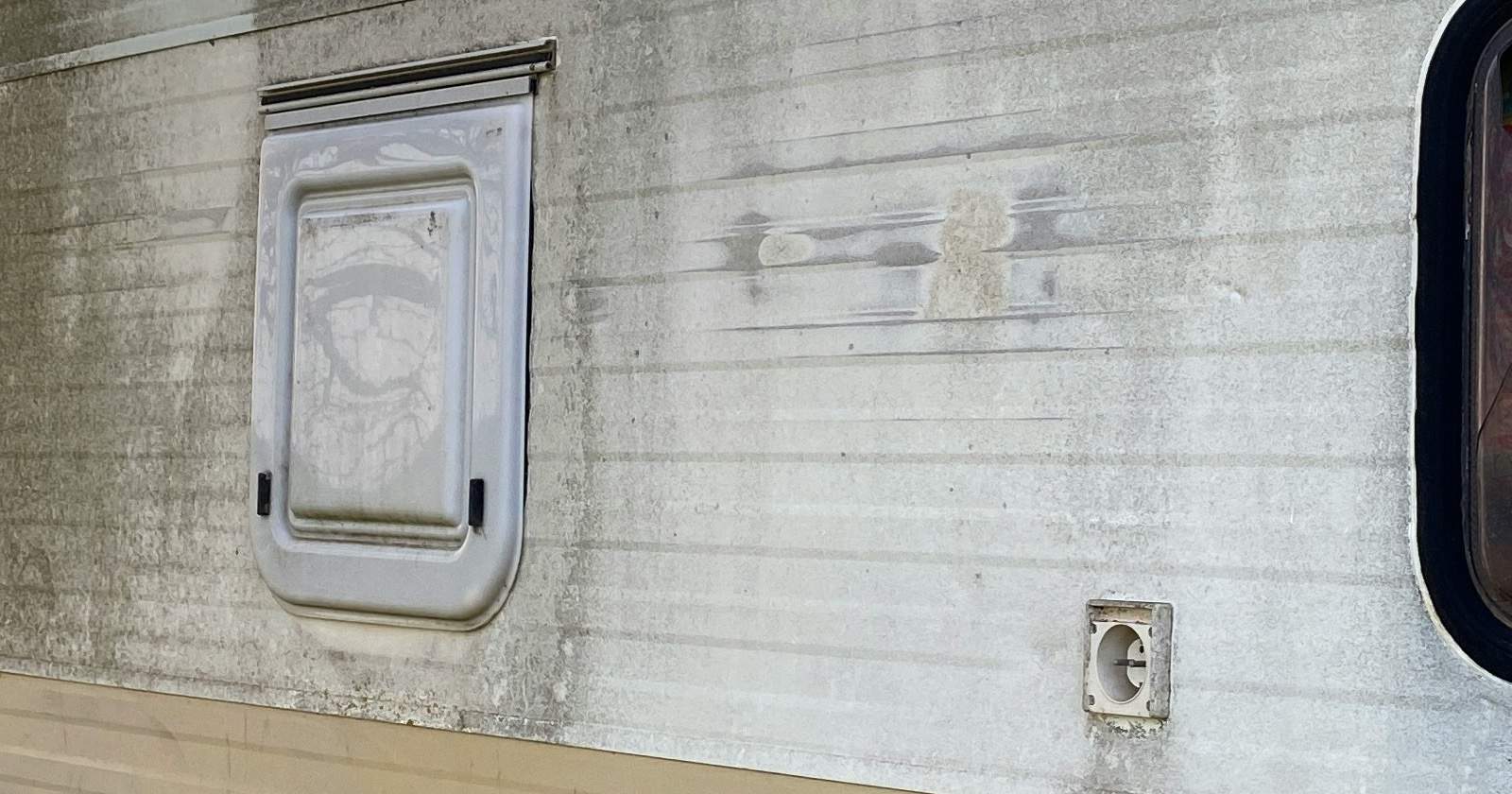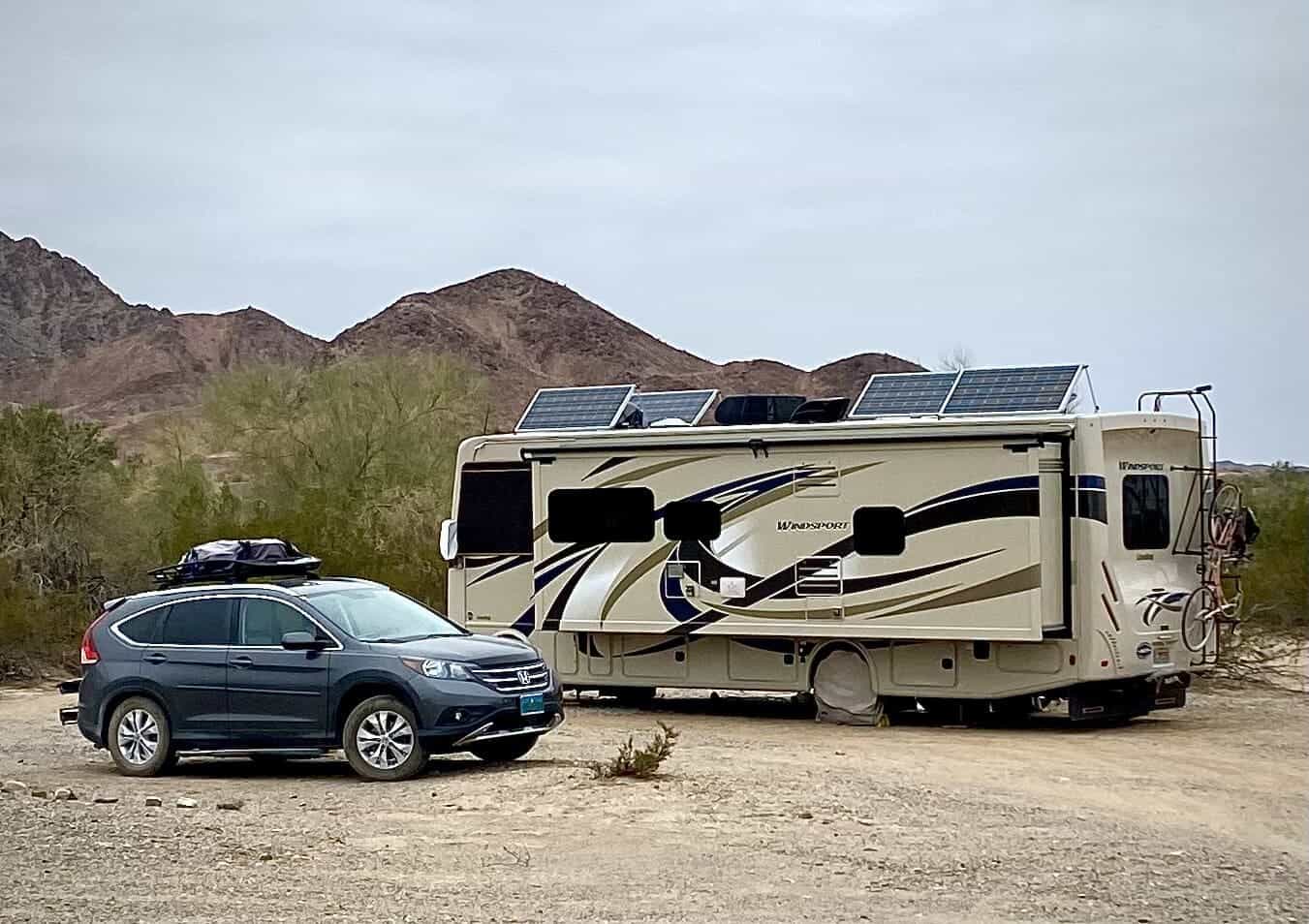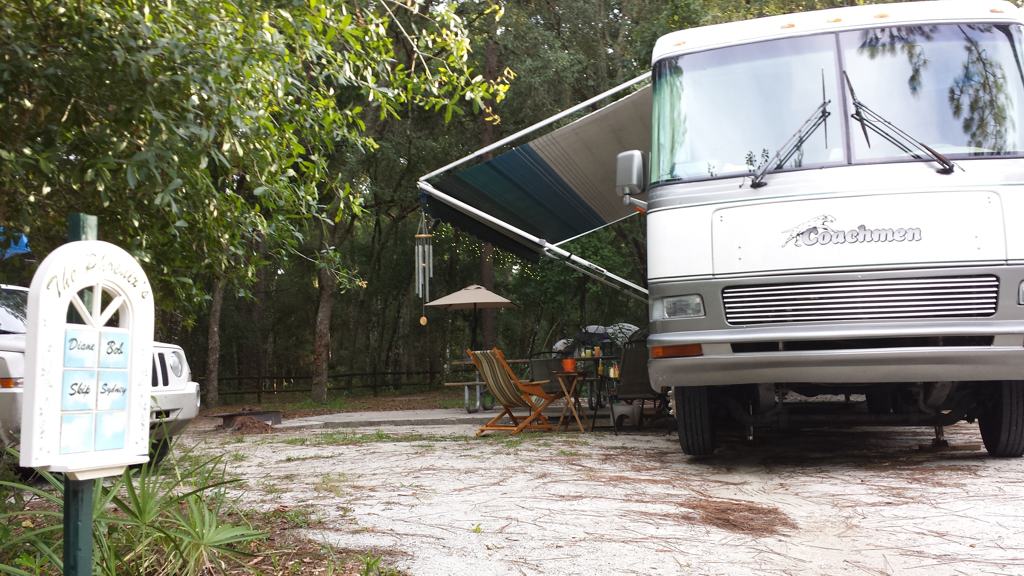The best portable RV generators will provide instant and continuous power that will truly make your RV fully self contained and livable in most camping conditions whether you need to supply a steady flow of power to your 110 volt electrical devices or keeping your air conditioner running.
If you enjoy dry camping or camping off the grid in your RV but still need access to your air conditioner, refrigerator, or other small 110 volt electronics like your coffee pot, microwave, or TV; an RV ready generator is an absolute must for any travel trailer or fifth wheel (most motorhomes come equipped with generators).
In this 3,200+ word post (don’t worry, you can skip ahead using the table of contents below), we’ve compiled a list of the most reliable and the best RV generators available in 2020 as well as a complete buying guide to help you further make the right decision when purchasing your RV generator.
3 Best Selling RV Generators at a glance
#1#1
Honda EU2200i Portable Inverter Generator
The Honda EU2200i is the smallest on our list but is perfect for small 30 amp trailers or when you don’t need a large output of wattage.
- Runs extremely quiet – perfect for campgrounds
- Super light weight
- Inverter
#2
Yamaha EF3000iSEB
The Yamaha EF3000iSEB can be a little bulky for some but with its large output and long run time can keep a decent sized RV air conditioner running throughout the day.
- Built-in noise control
- Can run for up to 19 hours
- Puts out up to 3500 watts of power
#3
Honda EU3000IH1A
The Honda EU3000IH1A provides plenty of output for larger 30 amp trailers and is quiet enough for most campgrounds and state parks. This thing is built to last!
- Extremely quiet
- High quality materials used in construction – built to last
- Can run a 13,500 BTU AC
6 Best RV Generators On The Market
So, who really makes the best RV generator on the market?
In our research, we’ve taken into account the wide variety of different RV ready generators on the market as well as what your RV really requires from a good generator in order to run properly and efficiently.
Honda EU2200i Portable Inverter Generator
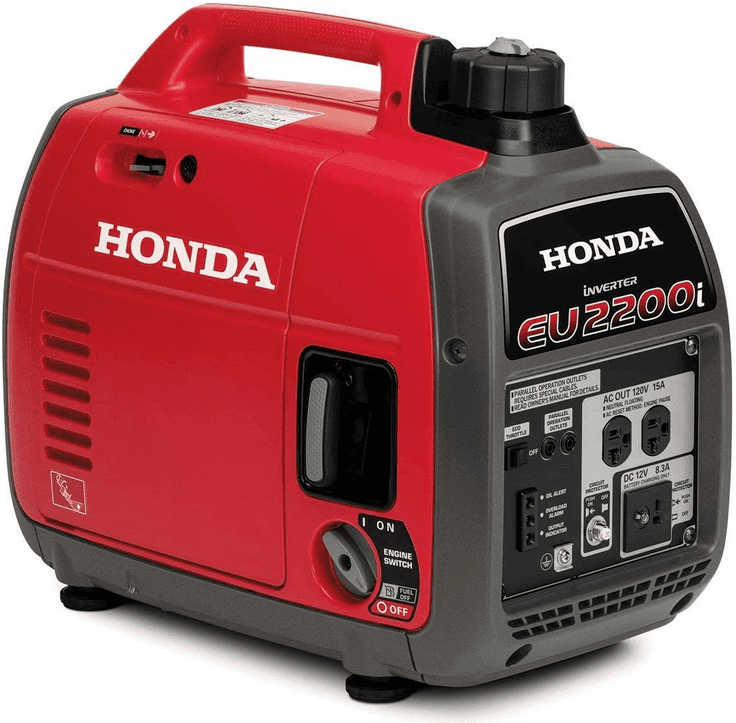
Pros
- Super quiet
- Light weight and portable – under 47 pounds
- Can run an 8,000 BTU AC without companion
- The Eco Throttle System allows the Honda EU2200i to run for 3-8 hours on single tank
- Inverter allows steady power for multitude of appliances – CPAP machine, Television, etc.
Cons
- Requires the Honda EU220i Companion to run 13,500 BTU AC
- Higher end price point
The Honda EU2200i portable generator is highly recommended when it comes to camping in your travel trailer or fifth wheel when not connected to a built in power source.
This portable RV generators comes highly recommended and is one of the most widely used portable generators readily available on the market.
The Honda EU2200i, when used without a companion, can steadily run much of your RV’s entertainment, including the TV and DVD, satellite, refrigerator, coffee pot, and more! If you need a bit more power, you can parallel with the Honda EU2200i Companion to get 4400 watts.
Alone, the Honda EU2200i can run a small 8,000 BTU RV air conditioner but can run a 13,500 BTU RV air conditioner when paralelled with the companion.
One of the best things about this generator is that it’s super quiet! At only 48 to 57 dBA, this Honda is one of the quietest portable inverter generators on the market! With a low dBA, you can have a normal conversation without the Honda generator roaring over you.
Another great feature that any RVer can appreciate is the Honda’s fuel efficiency. With less than a gallon of fuel, the portable Honda EU2200i can run up to a staggering 8.1 hours!
Easy to use
Not only should your RV generator be reliant, especially when dry camping, but it should also be easy to use.
The folks over at Honda made sure that the EU2200i was extremely easy to use and user friendly. This Honda generator is equipped with an automatic mechanical decompressor system that significantly reduces the amount of force required to start it’s engine.
One thing you may find extremely useful is the generator’s fuel shutoff. The Honda has a “fuel shutoff” position that allows the generator to continue running off until the remaining fuel in the carburetor is used, which is intended to help prevent stale fuel. Left over fuel gums up the carburetor.
Personally, I can really appreciate the electronic circuit breaker feature. The Honda EU2200i’s circuit breaker feature protects the generator from an overload which occurs when running too many watts.
Yamaha EF3000iSEB
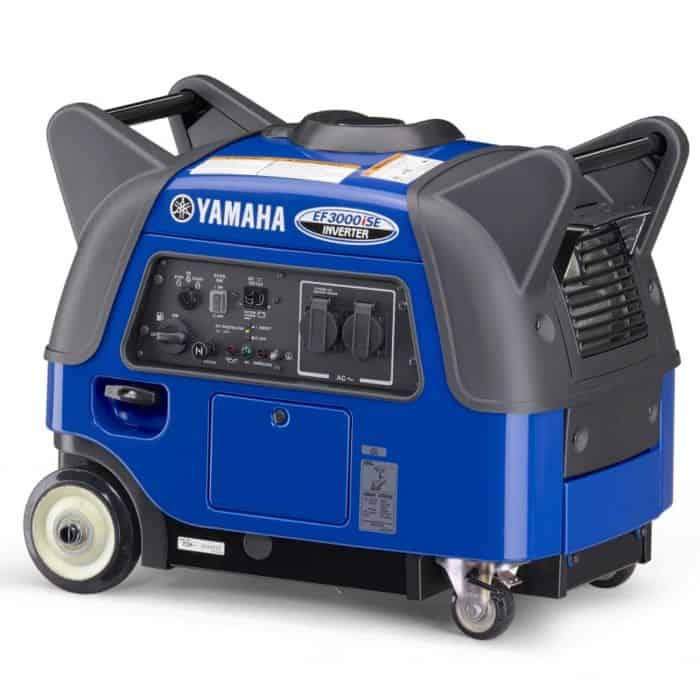
Pros
- Boost Control Unit gives you extra power for up to 10 seconds
- Built-in noise control gives you a quiet generator
- The engine automatically matches load for fuel efficiency
- 19 hours of continuous operation
- Has built-in wheels for easy portability
- Inverter allows steady power for multitude of appliances – CPAP machine, Television, etc.
Cons
- Not a streamline design
- A bit heavier than other generators
- Higher end price point
You can run this generator at 25 percent for a whooping 19 continuous hours, making it one of the longest-lasting RV generators on the market.
The engine automatically matches the load you’ve applied to it, giving the best fuel economy possible.
Even better, it can put out up to 3,500 watts of power and comes with a boost control unit that gives you even more power for up to 10 seconds.
At 3,500 watts, you can count on the Yamaha EF3000iSEB to comfortably run an 8,000 BTU or 13,500 BTU RV air conditioner.
This makes it one of the most powerful generators that we reviewed. However, even with that extra power and extended run time, this Yamaha generator is no louder than any other generator that we looked at.
It weighs just over 100 pounds, making it a little heavier than other generators in the same class, but it does come with built-in wheels, so it’s easy to move from one location to the next.
Whether you’re looking for a fifth wheel generator or one to throw in the back of your RV, this generator does everything you could ask and more.
Honda EU3000IH1A
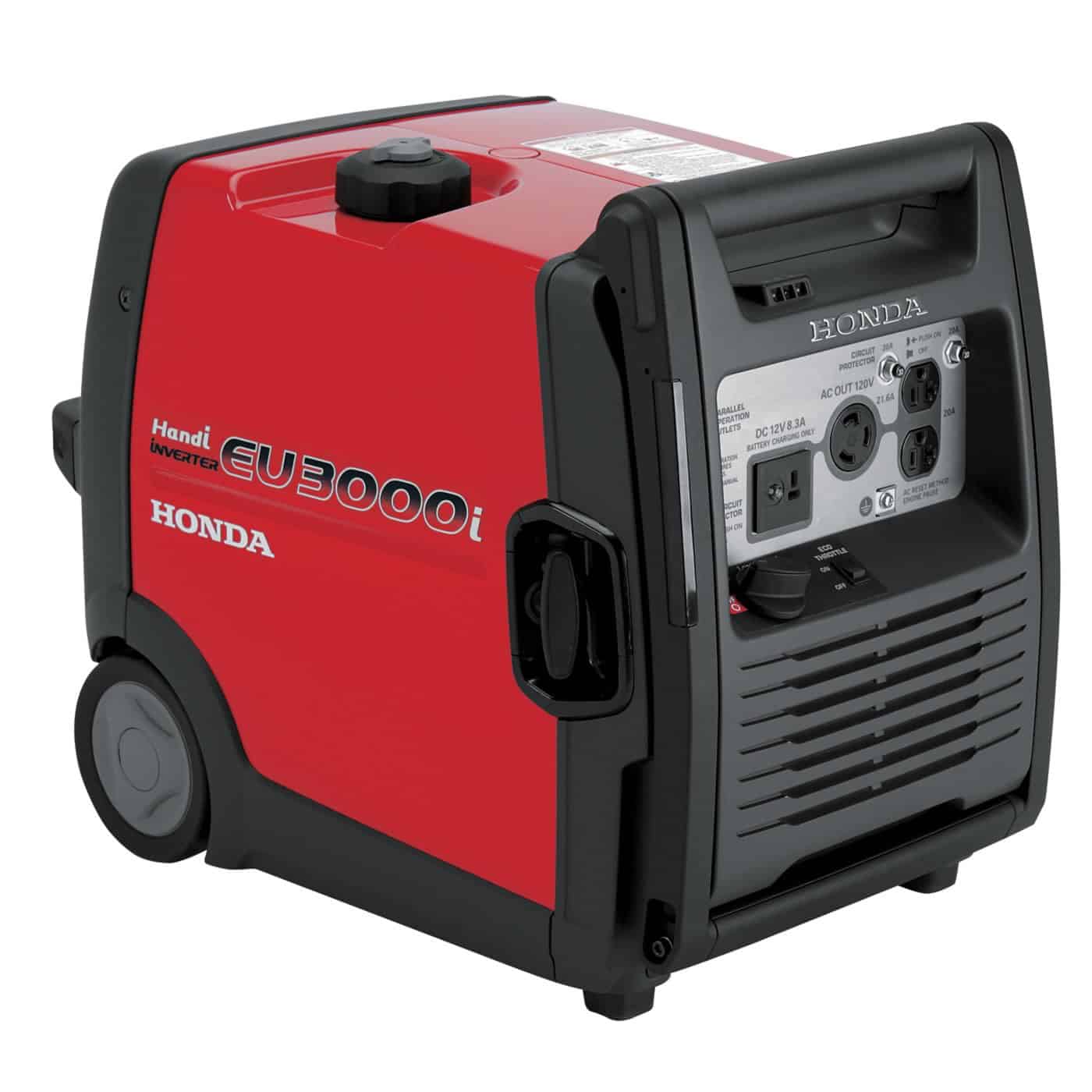
Pros
- 3-year warranty
- Extremely quiet generator
- Can run a 13,500 BTU air conditioner
- Made of high-quality aluminum materials
- Can hook up to a parallel configuration
Cons
- Only 6.5 hours of power per tank
- Higher end price point
Honda built this generator to last year after year. It’s made from high-quality aluminum and comes with a 3-year warranty.
It’s extremely quiet and can put out 3,000 watts of power. This power output will allow the Honda EU3000i to comfortably run your 13,5000 BTU RV air conditioner.
You can boost that power by running it in parallel with another generator. Still, you’d be better off spending the extra money on an upgraded generator if you need the extra power.
Furthermore, it has a small fuel tank and only gives you 6.5 hours per tank while running at 50% capacity. While this is an extremely high-quality Japanese built generator, it’s a bit of a disappointment for what you’re paying.
However, it will last for years to come. If you’re looking for a low maintenance RV generator that will fire up year after year, it’s hard to beat a Honda.
Westinghouse iGen4500
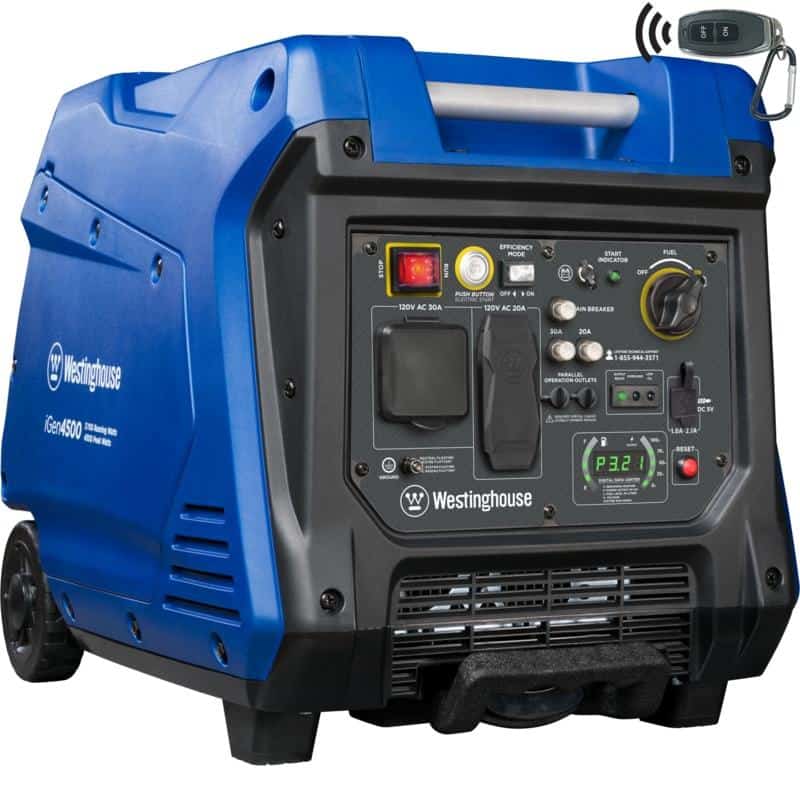
Pros
- Can run up 18 hours
- Runs extremely quiet
- Comes with a 3-year warranty
- Has a fuel-efficient mode
- Can run 13,500 BTU RV air conditioner
Cons
- Built with cheaper materials
- Requires frequent maintenance
- Customer support can be hard to work with
You don’t need to spend a ton of money to get a high-quality travel trailer generator.
This generator is half the price of many of its competitors, and it still puts out 3,700 watts of power. Even better, at a 25 percent load, it can run for an impressive 18 hours.
However, when you need the extra power, all you need to do is flip the switch, and this generator can run just about anything.
While you get a ton of features with this generator, the old mantra you get what you pay for still rings true.
Westinghouse built it from cheap materials, and it requires a lot of maintenance. However, it does come with a 3-year warranty, but sometimes Westinghouse’s customer service team can be so hard to work with that it’s not worth it.
This RV generator is extremely quiet and will get the job done if you keep up with all your checks and change the oil regularly.
If you don’t have the money to drop on a high-priced generator – this is a fabulous viable alternative.
Champion 3400-Watt Dual Fuel RV Generator
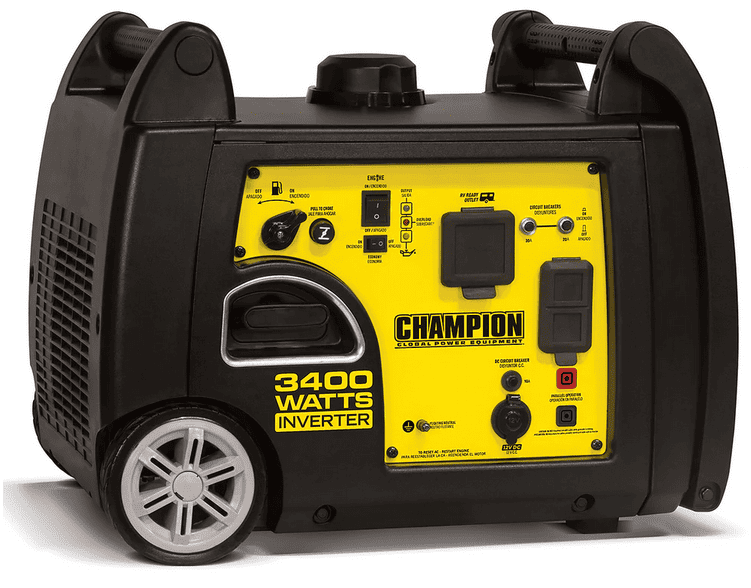
Pros
- Runs on both gasoline and propane
- 3-year warranty and lifetime technical support
- Runs on a 4-stroke engine
- Can run parallel power
- Includes propane hose
- Can run 13,500 BTU RV air conditioner
Cons
- 7.5 hour run time
If you’re looking for an ultra-portable, extremely convenient RV generator, look no further. This generator can run on both gasoline and propane, making it extremely versatile when you’re headed out for a week off the grid.
It comes with a 3-year warranty, but a lifetime guarantee of free technical support.
This generator utilizes an ultra-efficient four-stroke engine, limiting the amount of maintenance needed year after year.
It can parallel power, but with an output of 3,400 watts, you’re not likely to need it very often. It comes with everything you need to run it, including a propane hose.
The biggest drawback to this Champion generator is that it only runs for 7.5 hours at a 25 percent load, but even that isn’t a terribly short amount of time. But it is significantly less than other generators offer.
Generac IQ3500 Portable Inverter Generator
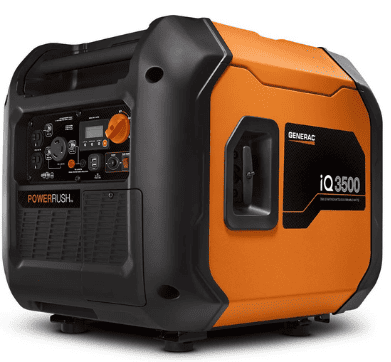
Pros
- Comes with economy mode
- Ultra-quiet
- Has built-in USB ports
- 14 hour run time
- Easy to use controls
- Can run 13,500 BTU RV air conditioner
Cons
- Heavier design
- No built-in wheels
This ultra-quiet generator is both a great price and a great RV generator.
It’s significantly cheaper than some of the top line RV generators that we reviewed, but Generac didn’t sacrifice the quality as a result.
It comes with an economy mode that allows it to run for just over 14 hours at 25 percent load capacity. Generac built it for the modern world, with both electrical outlets and USB ports. Whether you need to charge your cell phone or keep your heater running, this generator can get the job done.
It’s easy to use with button controls making it an excellent option for those that don’t want everything to be as simple as possible.
The most significant drawbacks to this generator are that you can’t order it straight off Amazon, and it is heavier than other similarly sized generators.
Add in the fact that it doesn’t have wheels, and this generator can be hard to move from location to location. But once you’re there, it’s perfect for both weekend getaways, power outages, or tailgates!
4 Important Things To Consider Before Purchasing an RV Generator
Before purchasing a generator, there is quite a bit to understand about generators, your RV and what it takes to actually use a generator to run your RV.
1. Electrical Systems and Power Requirements
There are two different types of RV electrical systems; a 30 amp system and a 50 amp system.
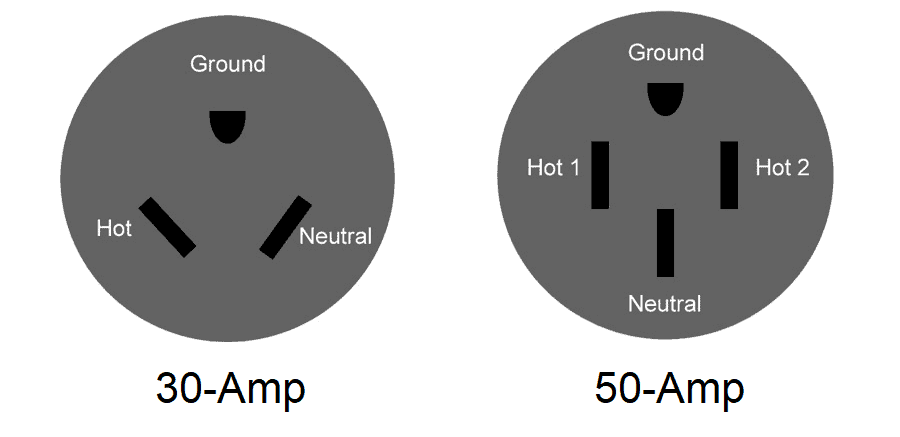
A 30 amp system is typically used on RVs with a lower load capacity. This system has 3 prongs which are a single ground wire, a single 120 volt hot wire and a single neutral wire.
A 50 amp system provides an RV with a maximum of 12,000 volts, which is for a much larger load capacity. This system has a single ground wire, two 120 volt hot wires and a single neutral wire.
Knowing your electrical system is essential in determining the size of the generator needed to run your RV.
If electrical systems just aren’t your thing; keep it simple and know whether your RV is equipped with a single AC unit or a dual AC unit.
A single AC unit is indicative of a 30 amp electrical system and two AC units is indicative of a 50 amp electrical system.
Note: Even though your RV is only equipped with a single AC, it may be prepped and wired for a secondary AC which would also make your RV a 50 amp electrical system. Check your owner’s manual or the manufacturers website for this information.
Still unsure? Check the sticker above your RV’s power cord as seen in the photo below.

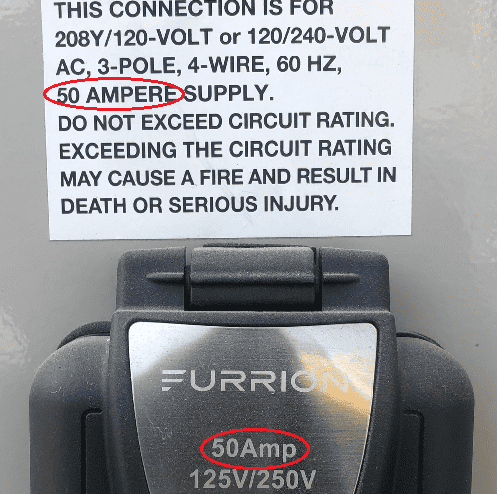
|
Size of AC |
Approximate Starting Watts |
Approximate Running Watts |
|---|---|---|
|
13,500 btu |
2,800 – 3,000 watts |
1,500 – 2,000 watts |
|
15,000 btu |
3,300 – 3,500 watts |
1,300 – 1,800 watts |
Knowing this information will assist you in deciding the appropriate size of the generator need to run your RV.
|
3,000 Watt RV Generators |
will start your RVs 13,500 btu air condition and will allow you to run a few small items. (RV fridge, microwave, TV, coffee maker, etc.) |
|
3,000+ Watt RV Generators |
will start your 15,000 btu air conditioner as well as run a few small items. (RV fridge, microwave, TV, coffee maker, etc.) |
|
Two 2,000 Watt RV Generators |
will start your Rv’s 13,500 btu or 15,000 btu air conditioner as well as run several appliances. |
|
4,500+ Watt RV Generators |
will start your 13,500 btu or 15,000 btu air conditioner in addition to providing plenty of power to for the rest of your RV’s appliances. |
|
5,000 – 6,500 Watt RV Generators |
will start and run your RV’s dual AC system as well as provide plenty of power to the rest of your appliances. |
2. The Types of Generators
When looking for the best generator to run your RV, you will come across two different types of generators; the conventional generator and the inverter generator.
Though we highly recommend an inverter generator to power your RV, we will briefly touch on the conventional generator and why the inverter generator is the “ideal RV generator.”
Conventional Generators
Conventional generators, though not typically recommended, can be used to keep an RV running.
Conventional RV generators come equipped with a larger fuel tank than most inverter generators but are often bigger, bulkier, and heavier.
Though they have a large fuel tank, conventional generators are not very fuel efficient due to the fact that they run at a constant of 3600 rpm, regardless of their power load.
One of the more convincing reasons that conventional generators are not typically recommended for RV camping is their high decibel levels (sound level) usually ranging from a low end of 80 dB to as high as 100 dB depending on the size of generator being used.
Inverter Generators
When compared to the conventional generator, inverter generators are by far the more ideal “RV generator” of choice.
The “small” and “recreational” sized inverter RV generators can weigh as little as 50 pounds which truly make portable and easy to store away when necessary.
Like your conventional RV generators, inverter generators will also have a “fossil fuel tank” as well as a battery, alternator and inverter. Because of the electrical components involved with an inverter, the electrical output is much “cleaner” than their conventional counterparts.
This cleaner output means that running your RV on an inverter generator will supply it with a steadier more efficient flow of electrical output.
3. Noise Level
When shopping for an RV ready generator, it is extremely important that you take into consideration the generator’s noise levels especially if you plan on camping next to guests or staying at one of the many campgrounds across the country that put strict noise pollution restrictions into place.
According to a Portable Generator Noise Assessment by the United States Depeartment of Agriculture, The National Parks service does not allow generators to run at 60 dBA at a 50 foot level.
It is best to contact the campground, of which you plan on visiting, ahead of time in order to fully understand their campsite rules and regulations on RV generator noise pollution.
Tips on Properly Handling a Generator When RVing
Generators are heavy equipment and should be treated as such.
Keeping your family and yourself safe should be your number one priority when handling your RV generator.
Below are a few tips and steps on properly handling your new generator.
Fueling your generator
Since most portable RV generators run on gas and/or propane, you need to use caution when handling and using it. Gasoline and propane are obviously extremely flammable, so be cautious when fueling and starting your generator.
- When filling your generator, allow for the fuel to expand so as to avoid overflow. If you overfill your generator, you run the risk of leaking feel onto the engine which can easily cause a fire.
- Always refrain from refueling your generator while it is running.
- Before storing your generator, make sure to empty the tank completely so as to avoid excess fumes.
- Do not run your generator next to a campfire.
- Do not handle a running generator. Running generators can become very hot and cause burns.
How to Safely Store and Operate Your New RV Generator
Where you put your portable generator and operating it safely are very important.
Always use your generator outside or in a well ventilated area. Never start or run your generator while on the inside of your RV or while the generator is in an exterior storage compartment.
While running, the generator exhaust will give off carbon monoxide which is an extremely toxic gas.
Always check your carbon monoxide detector and make sure that it is live and in good working order.
Generators are not safe for children to be around in any way. Make sure that no children or pets have access to it and keep them away from it at all times.
- There should be at least 5 feet of clearance on ALL sides of the running generator.
- Generators can be used in many different kinds of weather and temperatures but protect it from the elements when it isn’t in use so it doesn’t rust or short out.
- We will state this again…NEVER use a portable generator inside your RV or in a garage or storage compartment.
- Make sure the space you set up the generator is level and it needs to be protected from excessive moisture, dirt, dust and corrosive vapors.
- Make sure that you inspect your generator before using and after using (once it is completely cool) to make sure it is running properly and in good repair. If anything is not as it should be, take care of it right away so it is in good working order when and if you need it.
- Perform routine maintenance on your portable generator according to the owner’s manual for your model. This keeps it in great working order so it’s ready when you need it and also helps it last longer. If your model comes with a warranty, this keeps the warranty intact as long as you adhere to the stipulations of routine maintenance and don’t do anything it states not to.

